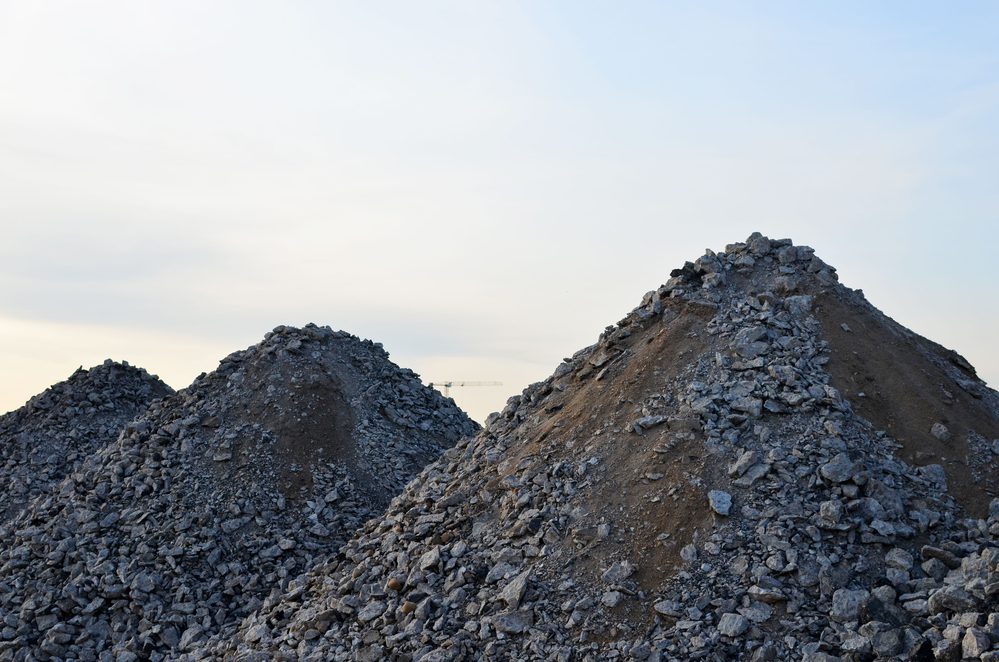What Is Aggregate In Concrete
Aggregates include four primary materials; recycled concrete, crushed stone, sand and gravel to create construction materials. Aggregates make up some 60 – 80% of the volume of concrete, and can be used in its natural form or crushed.
Aggregates are classified into two types, depending on their particle size. This includes coarse and fine: A well-graded aggregate will have a fair range of particle sizes that evenly span. Coarse aggregates are larger size filler materials, whilst fine aggregates usually consist of crushed rock and sand for smaller size distribution. Lightweight aggregates will often be used for concrete blocks or pavements, whilst heavyweight have a higher density for the amount of cement to be beneficial as radiation shielding, ceilings and walls.
When producing concrete mixes to form hardened concrete, cement (mostly portland cement) and water combine with aggregates. To create a strong mix, chemicals and fine materials must be cleared to reduce the deterioration of concrete.
What Are Recycled Aggregates?
The construction sector uses 400 million tonnes of material every year, which results in 100 million tonnes of waste being produced. However, many businesses are making use of their waste to reprocess materials they have used into recycled aggregates.
The use of recycled aggregates is becoming more and more popular across the UK since the pressure of increasing sustainable processes whilst cutting costs. Construction Materials Recycling Association states that around 100 million t of concrete is recycled annually into usable aggregates.
How Are Recycled Aggregates Formed?
Recycled aggregates are produced from construction and demolition waste (C&DW). This could be created from a variety of work such as demolition, construction or land clearings. These materials are then supplied into a crusher which breaks down the waste into the desired specifications. This may be followed by screening and a quality control procedure.
The Benefits Of Using Recycled Aggregates In Concrete
1. Sustainability
As an organisation, using recycled aggregates enhances your green profile with the use of eco-friendly construction materials. Not only does this help save raw materials and harm to the environment in production, but it also enables you to minimise waste sent to landfill. This means that you can repurpose your materials time again rather than sending them to pollute our planet.
Boosting your green credentials is also key to grabbing clients attention. People admire businesses that are making changes to minimise their impact on the world, and are often highly more likely to work with construction businesses that can offer services using a greener approach compared with others in the industry.
2. Cost-Effective
Whilst quarrying prices are on the rise, using recycled aggregates is much more cost effective to purchase. You can also use local aggregate suppliers to cut down costs when transporting materials, which also minimises further pollution when travelling with materials.
Paying pricey landfill tax and sending materials here can also be steep when you could rather be recycling concrete from projects and reselling if needed.
3. Durability & Strength
Recycled aggregates can be used for a huge range of different constructions. Whether that be in buildings, paths, bridge foundations or barriers. The capabilities to mix the materials with cement to form stronger materials makes it so versatile for the construction sector and various projects are undertaken.
Are You Looking For Recycled Aggregates?
At Bailey’s Skip Hire, we use 6f2 that is a form of recycled aggregate which is coarse. We offer a delivery service for the local area around Corby, with a minimum order of 18 tonnes. Whilst we provide high quality recycled aggregates, we are also able to collect and recycle your commercial waste whilst providing skips and containers for your site projects. Get in touch with our friendly team today to find out more about our services.




